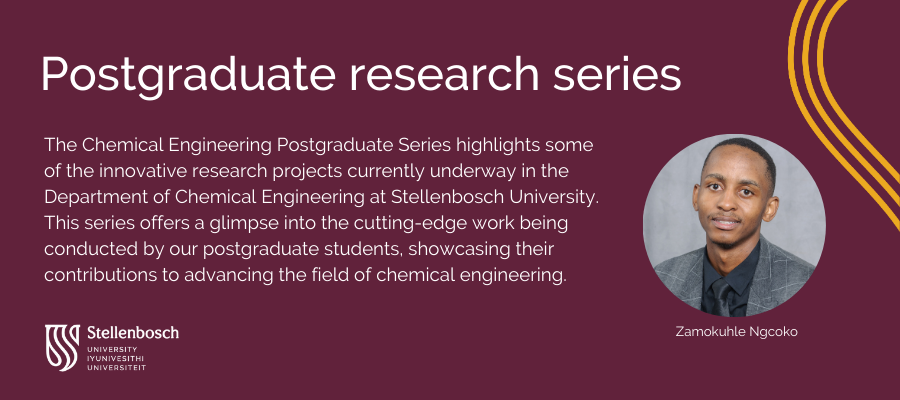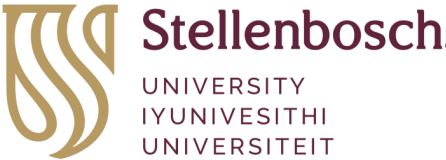
As the global demand for sustainable packaging solutions rises, innovations in biodegradable and intelligent packaging have become essential. Zamokuhle Ngcoko, a master’s student in Bioresource Engineering at the Department of Chemical Engineering at Stellenbosch University, is conducting research focused on developing a nanocomposite coating for fibre-based packaging. The primary aim is to enhance the packaging’s gas and water barrier properties, antioxidant activity, ethylene scavenging, and antimicrobial effects.
Key objectives of the research include modifying the selected matrix to increase hydrophobicity, enhancing the water contact angle for improved water resistance, and reducing gas permeability – particularly water vapour, oxygen, and carbon dioxide. The research also incorporates components to boost antioxidant and antimicrobial properties, and another one to improve ethylene scavenging. This project addresses critical environmental and economic challenges in the packaging industry, especially for climacteric fruits that require extended shelf life.
The development of this nanocomposite coating highlights the importance of sustainability and circularity by utilising waste materials such as citrus peels and cellulose waste. This innovative approach aligns with the principles of waste valorisation, where waste materials are transformed into valuable products, contributing to a circular economy.
The primary application of this research is the creation of advanced packaging solutions for climacteric fruits and other perishable goods. By enhancing the packaging’s gas and water barrier properties, antioxidant activity, ethylene scavenging, and antimicrobial effects, this coating can extend the shelf life of these products. Farmers and producers can use this technology to ensure longer storage periods for their produce, reducing post-harvest losses and improving distribution. Retailers will also benefit by offering fresher produce with extended shelf life, improving customer satisfaction and reducing food waste.
In addition, the research promotes the use of biodegradable and renewable resources, significantly reducing reliance on synthetic and non-biodegradable materials. By utilising waste sources, the project supports waste valorisation and helps to reduce environmental pollution. Using these waste materials in packaging production can reduce costs and enhance material circularity, making the resulting packaging more cost-effective and accessible.
The incorporation of the components with the ability to enhance the antioxidant, antimicrobial, and ethylene scavenging properties of the packaging, leads to better preservation of food products and reduced spoilage. By extending the freshness and shelf life of food products, this innovative packaging technology can contribute to substantial reductions in food waste, addressing a major global issue.
Supervisor: Prof. Annie Chimpango – Department of Chemical Engineering, Stellenbosch University
Co-supervisor: Mr. Zwonaka Mapholi – Department of Chemical Engineering, Stellenbosch University



